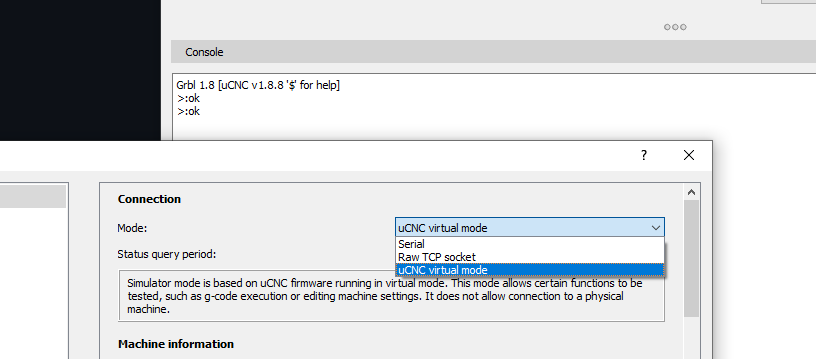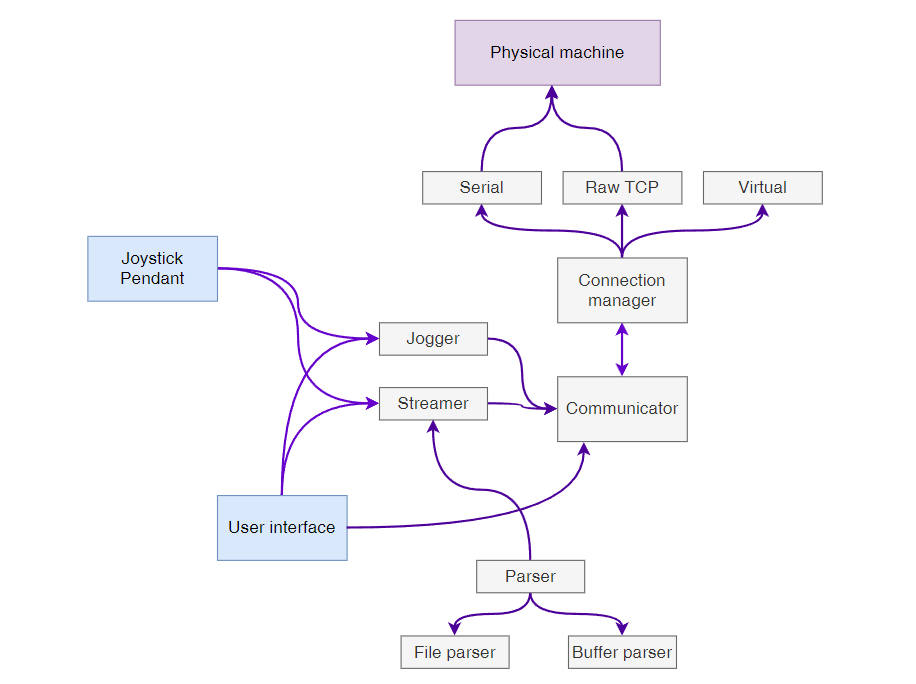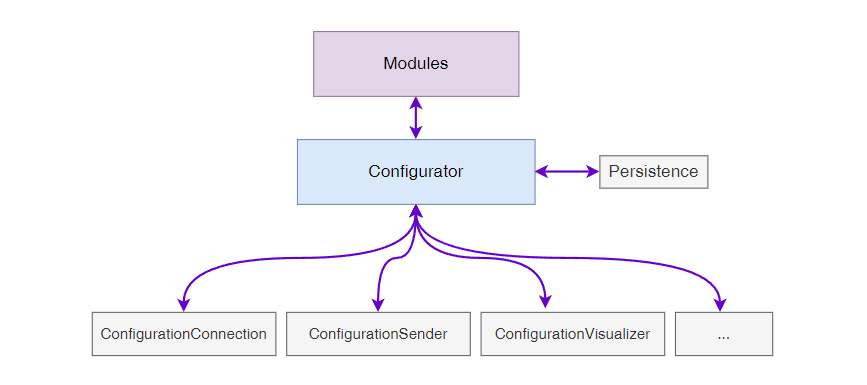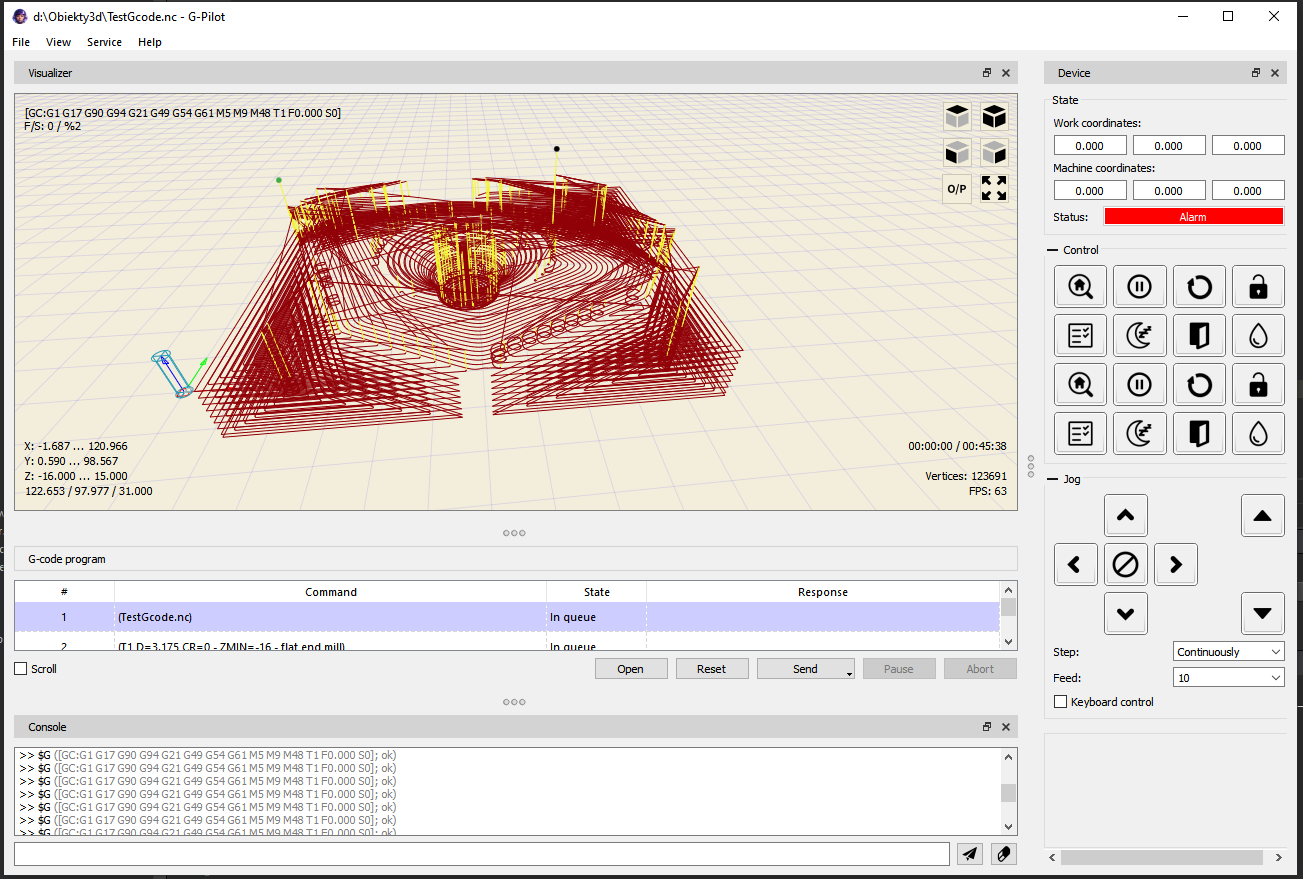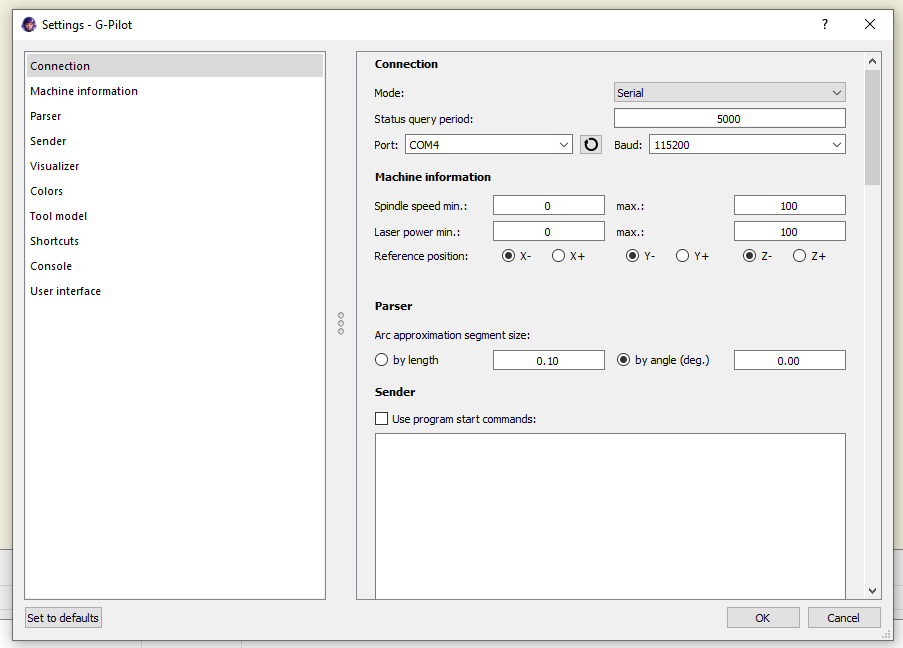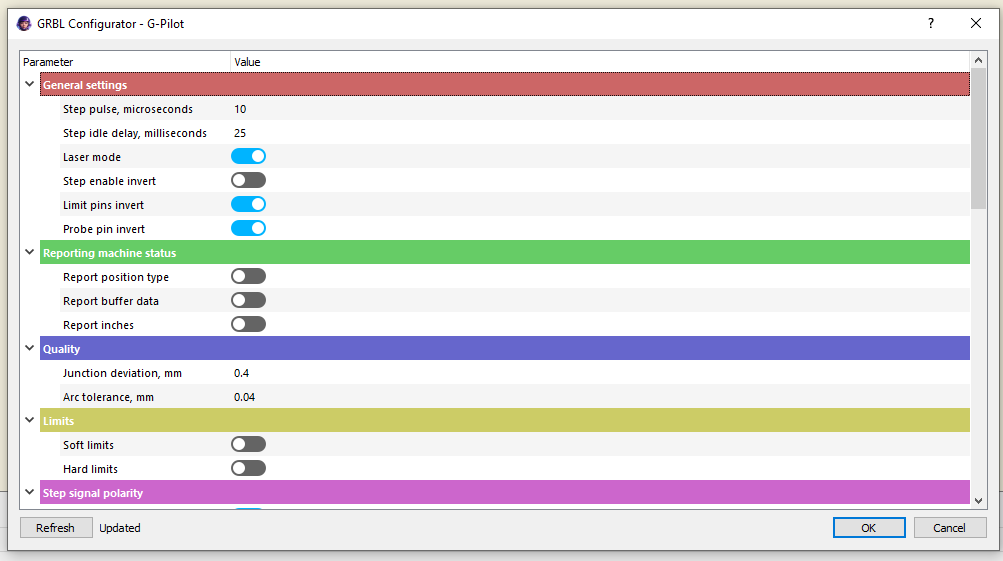- G-code Pilot: G-code is a programming language used to control CNC machines, so "G-Pilot" may suggest that the program is used for piloting or controlling using G-code.
- Guided Pilot: "G-Pilot" may also suggest that the program provides guidance or leads the user through processes related to CNC machining, similar to how a pilot guides an airplane.
- Global Pilot: This may suggest that the program offers solutions on a global scale, able to handle various types of CNC machines and be a versatile tool for controlling them.
- Genius Pilot: "G-Pilot" may suggest that the program is smart or advanced, similar to a pilot with high piloting skills.
- Graphical Pilot: If the program offers a graphical interface for controlling CNC machines, the name "G-Pilot" may suggest that it is a graphics-based tool.
This fork is based on the Candle experimental branch. The main goal is to add joystick/joypad support. Other than that, I'm making improvements/bugfixes at my discretion.
Any help is welcome!
GRBL/uCNC controller application with G-Code visualizer written in Qt.
Supported functions:
- Controlling GRBL-based cnc-machine via console commands, buttons on form, numpad.
- Monitoring cnc-machine state.
- Loading, editing, saving and sending of G-code files to cnc-machine.
- Visualizing G-code files.
- Joystick/Joypad/Controller support.
- Customizable interface.
- uCNC virtual mode (cnc machine simulator).
- Windows 10/Linux x86(not tested att all!)
- Graphics card with OpenGL 3.0 support
- 120 MB free storage space
Usefull links:
- https://github.com/Paciente8159/uCNC (modern firmware, inspired by Grbl and LinuxCNC)
- https://github.com/grbl/grbl (original GRBL firmware)
- https://github.com/grblHAL (modular, mostly compatible with GRBL)
Qt 6.8 with MinGW/GCC 64bit compiler
Start with:
git clone --recurse-submodules https://github.com/etet100/G-Pilot-Formerly-Candle
G-Pilot supports the following connection modes:
- Serial port
- Raw TCP, uses exactly the same protocol as serial port mode, no additional handshaking is performed
- uCNC virtual mode, no real hardware needed
The original Candle was built in a way that was not transparent and difficult to modify. My version will be built modularly, in a way that is tentatively presented in the diagram below. One of the changes is the complete separation of the interface from the machine control logic. This has the following advantages:
- General transparency and manageability of the code
- The ability to quickly change the UI, even with the possibility of creating it in a * different technology
- Easier handling of new communication methods
- Much easier addition of new features
- Easier testing
The diagram below shows the possible states of the application. Transitions between states are triggered by events such as changing the state of the machine, clicking buttons, etc.
stateDiagram-v2
%% Nodes
Idle
Running
Pausing
Paused
Resuming
Stopping
Stopped
Running
Run
Halted
Jogging
JoggingWaitingForIdle
Halted
Error
SoftReset
ChangingTool
[AnyState]
state Pause {
Pausing --> Paused
}
state Jog {
Jogging --> JoggingWaitingForIdle
JoggingWaitingForIdle --> Jogging
}
%% Edge connections between nodes
[*] --> Connecting
Connecting --> Connected
Connecting --> ConnectingError
ConnectingError --> Connecting : wait 3s
Connected --> Idle : if SoftReset enabled
Connected --> SoftReset : if SoftReset disabled
SoftReset --> Idle
Idle --> Run : run clicked
Run --> Running
Running --> Pausing : use pause or g-code
Running --> Stopping
Running --> Halted
Running --> ChangingTool
ChangingTool --> Stopping
ChangingTool --> Running
Paused --> Resuming : "on resume" g-code
Paused --> Running
Paused --> Stopping : stop clicked
Halted --> Running
Halted --> Stopping
Idle --> Homing : home clicked
Homing --> Idle
Resuming --> Running
Stopping --> Stopped
Stopped --> Idle
Idle --> Jog
Jog --> Idle
[AnyState] --> Error: If error
Error --> [*] : Error
[AnyState] --> Disconnected
Disconnected --> [*] : Connecting
Another module begging for a rewrite is the configuration storage mechanism. Of course, it will be detached into a separate module. Settings sets will be wrapped in separate classes. The reading and writing of fields will be partially automated. Persistence layer will be separated from the configuration logic. The configuration will be stored in a local file or in a cloud, for example Dropbox or Google Drive.
Only Windows preview version is available at the moment. They are not stable and contain many critical bugs. The Linux version will be available sooner or later.
Main window:
Settings:
GRBL configurator:

